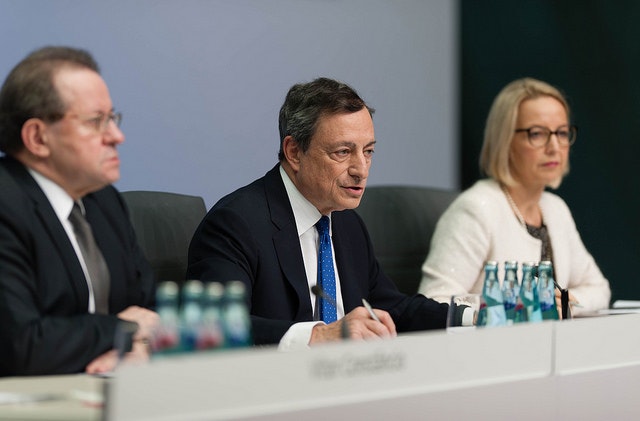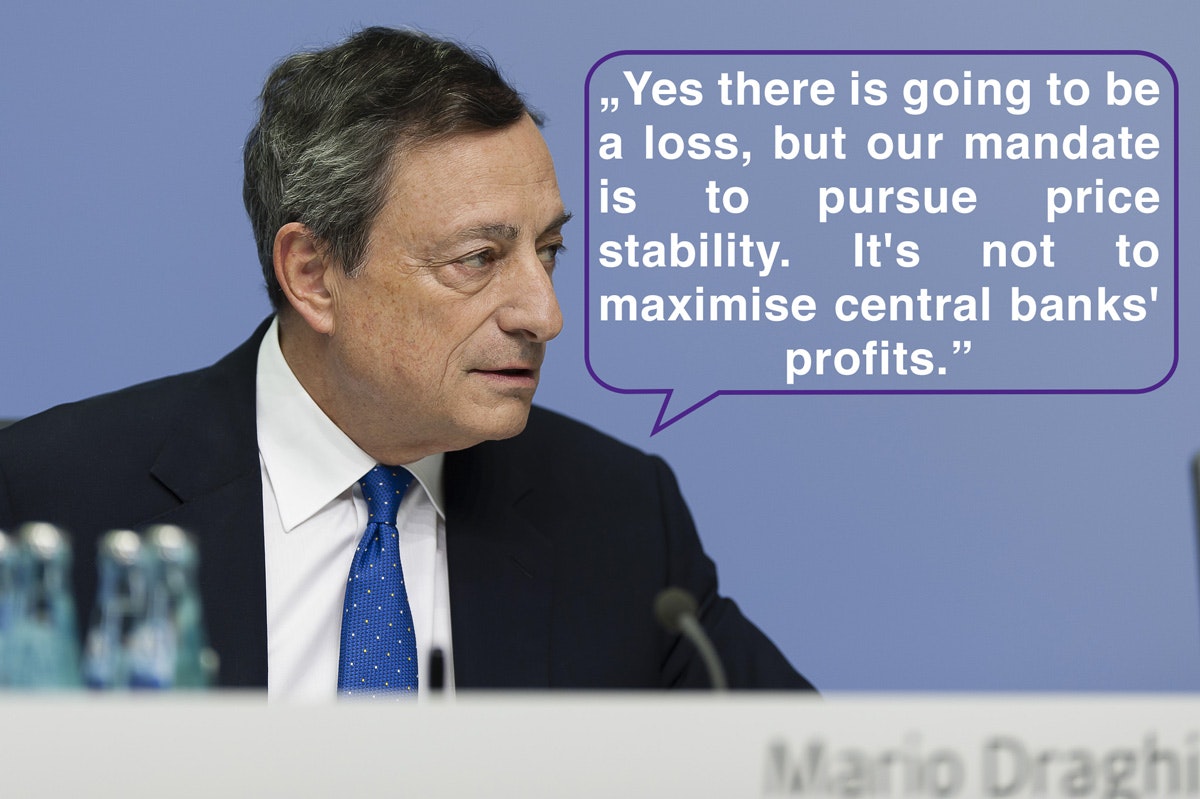Time for the ECB to work on its post-QE strategy

After announcing a reduction of the scale, the ECB signaled that QE is no longer permanent. Mario Draghi also hinted that making losses is not an issue for the ECB, thereby reducing intellectual doubts on the feasibility of other money creation proposals.
Yesterday the European Central Bank decided to extend its quantitative easing programme by nine months until December 2017, while decreasing the monthly amount of its purchases back to its original scale of EUR 60bn instead of EUR 80bn currently. It also announced some changes in its asset purchase guidelines.
By extending QE, the European Central Bank shows again its obsession with a strategy that is producing only very limited benefits for the eurozone economy and is unlikely to produce more in the future. But it also hints at compromise within the ECB’s Governing Council, with some members thinking that it is time to consider a QE tapering – reducing the amount of monthly purchases until zero.
In that sense, yesterday’s monetary policy statement is a more balanced and interesting one than we expected. It signals acknowledgement on the part of the ECB that more QE does not necessarily lead to better results. It may be time for the ECB to develop a post-QE strategy.
Yes, the ECB can make losses, Draghi says
In a move to enlarge the pool of assets it can purchase under QE, the ECB announced some adjustments to its programme. In particular, the ECB announced that for now it would allow itself to purchase bonds whose returns are lower than the deposit rates. In effect, this means the ECB will accept to make losses on the bonds it purchases.

When asked about this by a journalist, Mario Draghi made it clear that the ECB would indeed make losses, and later stressed that the ECB’s mandate is price stability, “not to maximize its profits”. This is a key point and addresses a recurring and misled concern that other forms of monetary expansion – such as QE for People.
Many commentators have argued that QE for People or helicopter money would not be possible for accounting reasons, because of the losses incurred on the ECB’s balance sheet. By following the logic of the ECB however, this makes it clear that an injection of money to citizens without a corresponding asset in the ECB’s balance sheet is in principle not a problem, since the ECB’s profit is irrelevant for monetary policy objectives (see this paper).
After revealing recently that the ECB views legal obstacles to helicopter money are weak and solvable, Mario Draghi just hinted that accounting issues are perhaps not so important either.
Is it the beginning of the end for QE?
The coming year will be very interesting to watch. Over the recent months we have seen a rise of political tension around QE and its side-effects. We doubt that those tensions will disappear so soon. And with all the political uncertainty in the global economy, it remains to be seen how far inflation picks up again, as the ECB predicts.
The ECB claimed yesterday that it could increase QE again if the economic conditions deteriorate. We do not think this is such a credible statement.
After three years of QE, it would mark a huge admission of failure of the ECB’s strategy if the Governing Council had to discuss again whether to increase it. Increasing QE again would be even more politically controversial than today. If we do get to this point, something else than QE will be needed and more imagination will be required. Obviously the case for upgrading the ECB’s toolkit with new tools such as QE for People can only become greater in the future.
Note: This article was originally published on the QE for People campaign website. As we are gradually phasing out the QE for People campaign, we are archiving this publication here. For more information, read the history of Positive Money Europe.